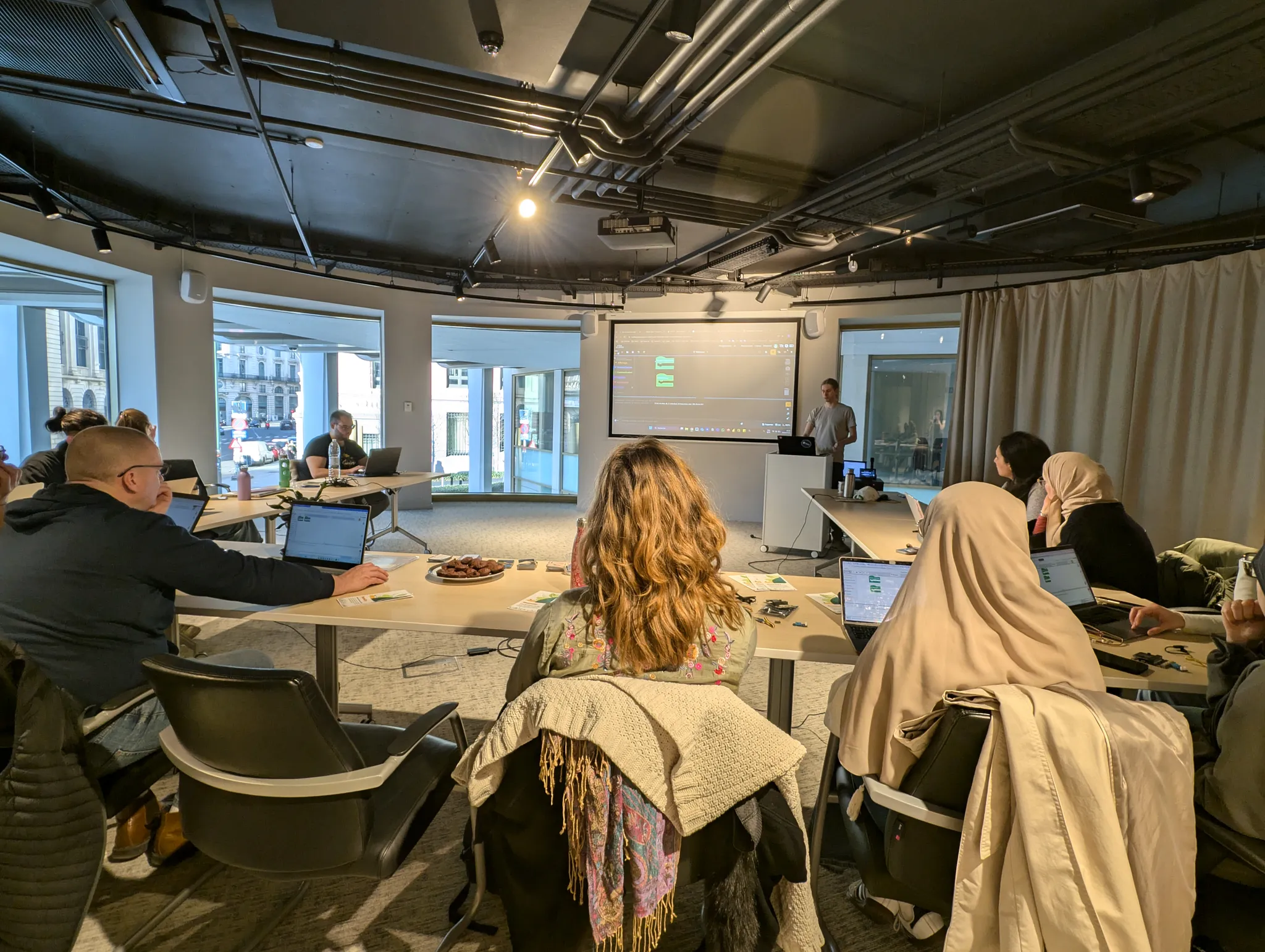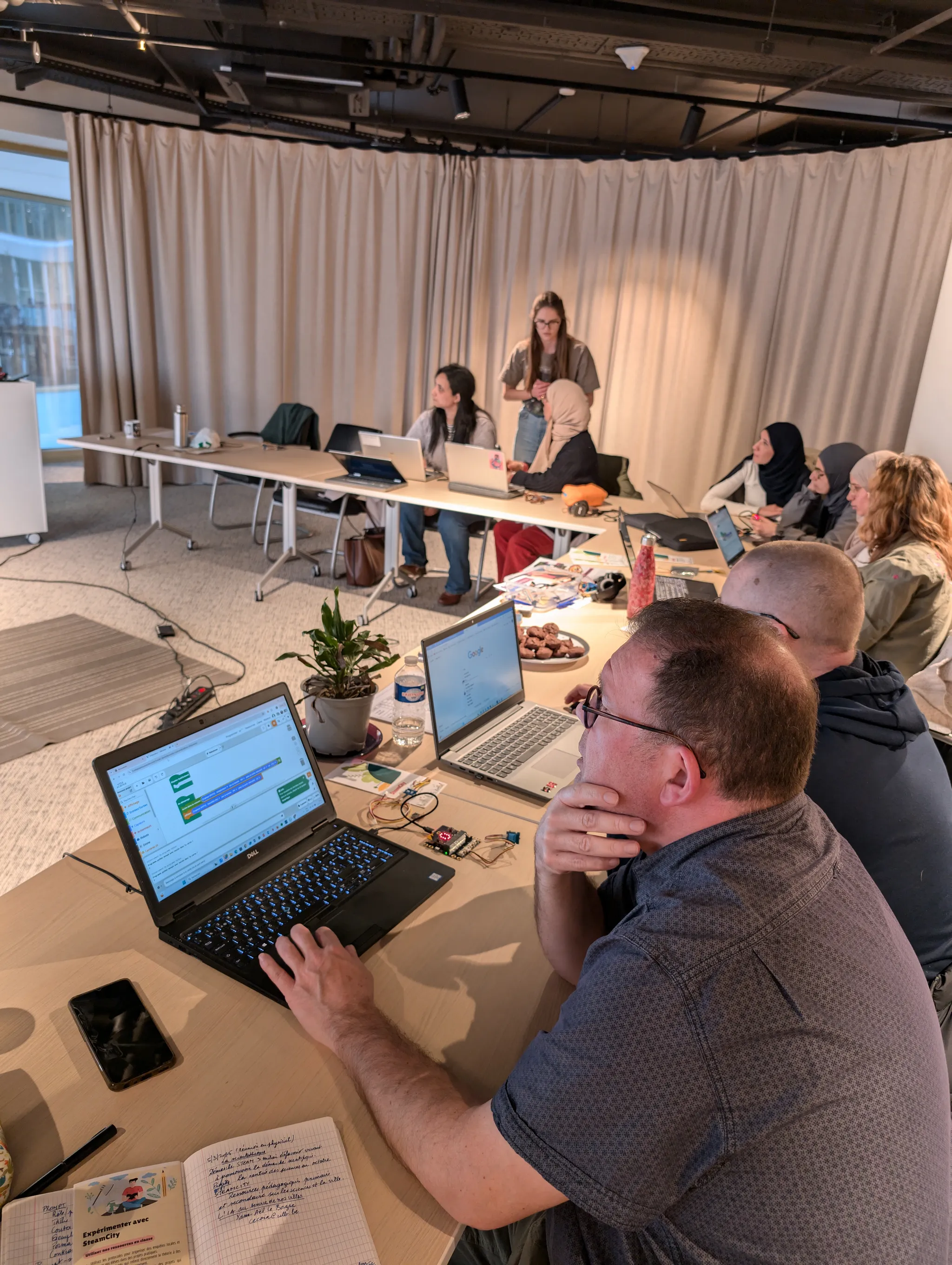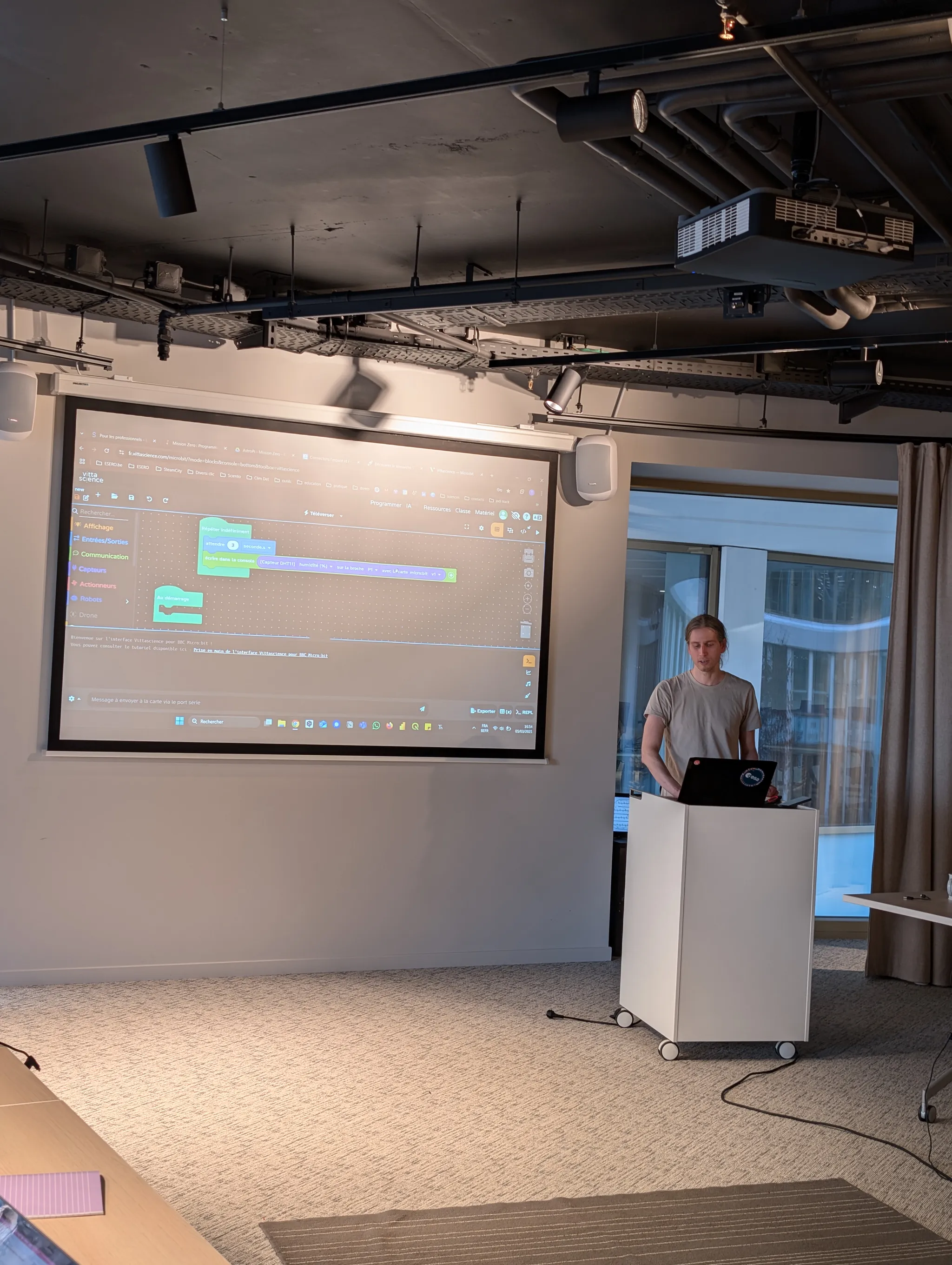🧪 SteamCity in Practice: Field-Testing Educational Innovation Across Europe
- Manon Ballester

- Jun 6, 2025
- 5 min read
Throughout 2024–2025, the SteamCity project organized a series of teacher training sessions and workshops in several European countries to test its scientific protocols in real educational settings. These sessions were were opportunities for collaborative experimentation, where teachers could engage with the protocols hands-on, offer feedback, and explore how to integrate inquiry-based, interdisciplinary learning into their own classrooms.
Each event brought together educators from diverse backgrounds — secondary school teachers of science, technology, literature, mathematics, and humanities — in venues ranging from public science centers to classrooms and pedagogical labs. The SteamCity team worked with printed materials, microcontrollers, interactive digital platforms, and physical sensors to provide teachers with a realistic preview of how students could explore urban challenges through active learning.
🇮🇹 Italy – Protocol Testing Workshop with secondary school Teachers in Naples
29 November 2024
The Italian session takled 18 secondary school teachers for a half-day session structured around three protocols: FactBuster, Smart Object Safari, and Design Unambiguous Road Signs. The format combined presentations, interactive exercises, and autonomous experimentation with printed and digital materials.
In FactBuster, participants explored how students could critically assess public claims by formulating hypotheses and verifying them through scientific reasoning and documentation. The protocol fosters critical media literacy, guiding learners through data collection, structured analysis, and evidence-based conclusions. Teachers appreciated how this method bridges science, civic responsibility, and communication.
Smart Object Safari introduced a creative process of designing intelligent urban devices. Using design-thinking tools such as RGB cards and mission-driven scenarios, the protocol allows students to imagine smart objects tailored to real needs—sensors in public spaces, accessible urban signage, or responsive devices. Teachers tested the process step by step and saw its strong potential for engaging non-technical learners in systems thinking and innovation.
In Design Unambiguous Road Signs, participants authored their own road signs and tested their readability through an AI model. The activity raised questions about symbolic communication, image recognition, and civic coding. Teachers noted the protocol’s ability to develop both visual literacy and understanding of AI training principles—in a fun, creative, and participatory format.
Participants described the session as clear and practical. They appreciated the coherence of the protocol structure and the variety of approaches used to link urban topics to investigative learning.
🇧🇪 Belgium – AI and Micro:bit Training in Brussels
5 March 2025
Fourteen teachers took part in a training session held at the Inclusion Lab in Brussels. During the event, the SteamCity project and its resources were presented, followed by an expert-led session on artificial intelligence in urban contexts, and a hands-on workshop introducing participants to the Micro:bit and its applications in urban greening and decision tree logic.
This session provided an opportunity to reflect on how simple, accessible technologies can support inquiry-based learning and bring scientific exploration closer to the realities of city life. Within SteamCity, protocols connected to AI, environmental sensing, and urban systems encourage students to explore how data — whether collected via sensors, structured into decision models, or used in simulation — can inform questions about mobility, biodiversity, energy, or digital infrastructure.
This workshop resonated with key pedagogical dimensions of SteamCity: linking computational thinking to local observation, using tangible tools to understand abstract systems, and encouraging learners to become active interpreters of their environment. Microcontrollers such as the Micro:bit offer a flexible entry point into these topics, particularly when used in conjunction with themes such as green infrastructure, smart planning, or urban classification frameworks.
The atmosphere during the session was described as engaging and convivial, with participants expressing interest and enthusiasm. Teachers strongly indicated their intention to bring similar activities into their classrooms. The session also reaffirmed the importance of ongoing support and adaptation, especially when exploring emerging technologies in education.
🇫🇷 France – Exploring AI and Creativity in Paris
12 March 2025
Five schoolteachers attended a half-day session to test three protocols related to artificial intelligence: Bot Buddy Adventure, Birdsong AI Explorer, and Discover Bio-Inspired Learning Processes. The training included introductions to each protocol and time for interaction with the materials.
Bot Buddy Adventure focuses on the logic of chatbot design. Teachers explored how students could structure dialogue, define functional constraints, and reflect on interaction scenarios. The activity includes tools for understanding prompt structure and the relationship between technical design and user experience. Participants found the approach accessible and adaptable to several disciplines.
Birdsong AI Explorer introduces supervised learning through bird call classification. Using example datasets, teachers followed the steps of training, validating, and evaluating a simple model. The protocol opened up discussions about labeling, bias, and the relationship between data and prediction. Participants considered the protocol clear and suitable for introducing machine learning in a school context.
Discover Bio-Inspired Learning Processes presents reinforcement learning through agent-based simulations. Teachers explored how students might observe patterns of adaptation and model basic decision-making logic. The protocol includes visual tools and guided steps, allowing a gradual entry into more abstract reasoning. The feedback highlighted the potential for cross-curricular connections and the use of the activity to support systems thinking.
🇧🇪 Belgium – Student Workshop on Air Quality Monitoring
27 March 2025
This session involved 21 lower secondary students and their mathematics teacher in a two-hour activity centered on air quality monitoring using simple digital tools. The workshop was built on protocols from SteamCity addressing air pollution, indoor and outdoor, and environmental sensing.
Students began with a short introduction to the composition of the atmosphere and the main types of air pollutants commonly found in urban areas. Facilitators explained the role of particulate matter (PM) and carbon dioxide (CO₂) as indicators of environmental quality, connecting these to sources such as traffic, enclosed spaces, and human activity.
Each student was given a Micro:bit microcontroller and guided through a series of challenges to explore its functions. These exercises introduced basic programming logic and prepared them to use the device in a measurement context. The approach followed a learning-by-doing model, allowing students to quickly move from abstract explanation to applied investigation.
In small groups, students used sensors to collect data on particulate levels at different locations in and around the school, including classrooms, corridors, the playground, and areas near the street. They observed and compared values, then shared their interpretations during a debriefing session. Discussions focused on potential causes for variations, such as ventilation, building layout, or proximity to traffic.
The workshop concluded with students reflecting on their findings and summarizing their conclusions about local air quality. The activity encouraged them to think critically about their own environment, supported the development of data literacy, and introduced them to basic environmental analysis using accessible tools. Teachers noted the students’ strong engagement and saw potential for further integration of these methods into science and math instructions.
In addition to this event, Scientothèque also facilitated two classroom-based sessions in Brussels: on 20 December 2024, a workshop with a science teacher and his class launched the activity “Mapping of Pollinators”; and on 25 March 2025, another group began exploring the “Plants and the City” protocol—both part of SteamCity’s broader effort to connect urban ecology with active, student-led scientific inquiry.

🔭 Looking Ahead
Across all sessions, teachers responded positively to the protocols tested and to the SteamCity approach. They described the structure as clear, the materials as usable without extensive preparation, and the themes as aligned with both curriculum content and wider social issues. The balance between inquiry, creativity, and technical skill development was noted as a common strength.
Participants particularly appreciated the open-ended nature of the activities, the possibility of adapting complexity, and the integration of urban topics — ranging from biodiversity and public communication to AI and environmental sensing. Several teachers expressed their intention to pilot the protocols in class and welcomed the opportunity to access multilingual resources upon final publication.
Further sessions are planned in Bulgaria, France and Spain in the coming months. These events will continue to build collective experience around SteamCity, offering teachers across Europe tools and spaces to explore the role of science and technology in shaping the future of urban life.
_edited.png)
















































